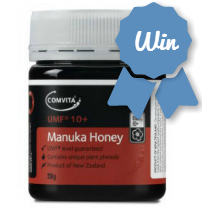If this is your first time dealing with ways to keep your swimming pool clean and well-kept then you will definitely get an idea on how to go through this process right here.
Swimming pools are sure lots of fun to have in your backyard, but you will need to spare a small amount of time every week to clean the pool. If you don’t have much time then once a week is good or if once every three days will be even better to keep the pool clean. You have to take a special interest in keeping your swimming pool clean if you have kids, who love to play in the pool.
The most well-known method to clean a swimming pool is to use algaecide and clarifier. This ensures a germ-free swimming pool safe for your kids and even babies. There are lots of algaecide and clarifier products available in the market today, but to purchase the correct and suitable one you must understand how this chemical works and whether it is suitable for your swimming pool. Known as a good preventative measure to maintain your pool, pool algaecides and clarifiers are chemicals that you can also use to prevent the growth of chlorine-resistant algae.
Bottom line is, if you regularly use algaecide and clarifier you will definitely save money as algaecide and clarifier are extremely useful all through low-chlorination periods.
Before you head out to purchase algaecide and clarifier, there are several things that you should do and know as listed below.
Method:
- Firstly, you must check the pool chemistry and filter before deciding to use any algaecide and clarifier. You can also adjust the pH of the pool or even perform basic filter maintenance to clean any cloudy or murky water inside the pool.
Here’s something helpful
For those of you who encounter regular problems like algae growing inside your swimming pool, you should add the algaecide daily. But if you do not have any algae problem, do not apply any algaecide pool chemical in your pool.
For your own advantage, learn to know the difference between both chemicals – Algaecide and Clarifier.
Algaecide is used to prevent the growth of algae and it helps to maintain the pH level of your pool. It is a chemical improves your pool filter’s performance as using algaecide will result in lesser waste to be processed by your pool filter.
Clarifiers coagulate fine particles floating in your pool to allow the filter work effectively and to remove all those particles. It also cleans and removes cloudy water from the pool. Technically, clarifiers seem to be proper for pools that are not too dirty to deal with.
Here’s a helpful tip
Before adding a pool clarifier chemical into your pool, make sure it is tested and find out its chemical level. If you notice that your pool water is cloudy, it is normally caused by an unbalanced pool chemical level.
- Always choose the very best algaecide that is reasonably priced.
How to decide on the right product?
You can combine both products together for the purpose of your pool’s cleanliness, but using just one chemical is enough to keep your pool safe and clean. Clarifiers are basic products with no difference, but there are many types of algaecide products in the market today, but it is best to choose the one that you can afford. You can also find non-metallic forms of algaecide, which works if you are looking for a user-friendly product. These days, there are:
- Algaecide Containing Chelated Copper
- Non-Metallic Forms of Algaecide
- Phosphate Eliminating Algaecide
When an algae dies it will release phosphates into the water, which is not good because it will provide nutrients for more algae to grow. In this case, finding an algaecide product with phosphate eliminating function will be the smartest choice.
Find a trustworthy pool chemical supplier to purchase your swimming pool’s algaecide and clarifier. The best algaecide and clarifier will help to protect your pool in any situations even if you are winterizing it or protecting it for the upcoming harsh season.
Where not to buy the needed product?
Many of us think that since our local and nearest store has what we need, why not? But, it is always smarter to take the long road instead and for this type of materials, make your purchase at a pool supply store where you are guaranteed to meet someone who has an experience in dealing with your kind of pool problem and can advise you rightly.
Remember not to add algaecide that contains copper because it creates a blue stain on certain types of pool surfaces.
Image Credit:
Flickr CC
Additional Reading:
Iodine as an algaecide for swimming pools, (Florida. University, Gainesville. Engineering and Industrial Experiment Station. Leaflet)
The Ultimate Guide to Pool Maintenance

![294207536_56bbbd06e7_o [320x200]](http://www.diy-guides.com/wp-content/uploads//2011/04/294207536_56bbbd06e7_o-320x2001.jpg)
